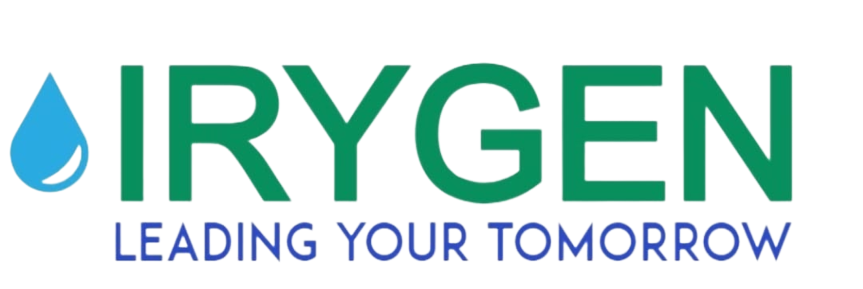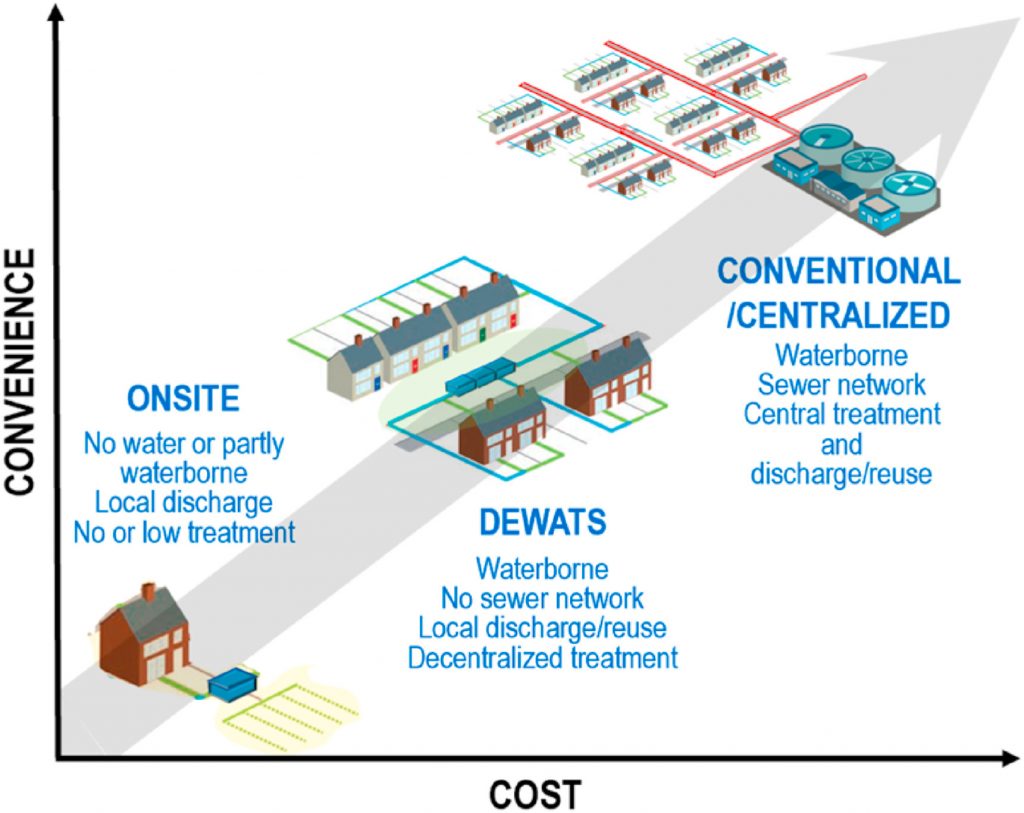Are you looking for an effective and innovative decentralized wastewater treatment solution for your commercial/industrial facility or community?
Lets start with the definition of decentralized wastewater treatment?
Decentralized wastewater treatment comprises essentially an approach to the collection, treatment and disposal/reuse of wastewater for industrial or commercial facilities, collection of businesses or communities.
These systems are typically installed near the point of wastewater generation and can be either managed as self functioning facilities or they can be associated with centralized wastewater treatment systems.
Decentralized wastewater treatment systems can either discharge the treated wastewater to the sanitary sewer of a centralized wastewater treatment system or the treated wastewater can be discharged to a surface water source or potential reused for irrigation or other non potable applications.
The water quality permitted to be discharged is determined by the local or national environmental regulations. In the USA, there is both a national pollutant discharge elimination permit (NPDES) as well as local jurisdictional permits for discharge water quality.
These decentralized wastewater treatment systems can be:
* Modular in nature with the ability to serve both commercial/industrial facilities as well as small communities.
* Treat wastewater in accordance with applicable local/state/federal discharge standards with the ability to allow for non potable water reuse purposes as required.
* These treatment systems can work well in rural, suburban and urban environments.
Why Utilize A Decentralized Wastewater Treatment System Approach?
There are several benefits and advantages to utilizing a decentralized wastewater treatment system configuration and these include:
– Modular design with capabilities to scale with minimized civil works costs
– Sustainable, optimizing energy and land space
– Safe and effective treatment with mitigation of contamination and potential health risks associated with wastewater.
Final Thoughts
Decentralized wastewater treatment can be a practical and cost efficient solution for commercial/industrial facilities and communities of any demographic or size.
However, decentralized treatment systems must be properly engineered, maintained and operated to provide the optimal benefits for its users.
In cases, where it is feasible to implement decentralized wastewater treatment solutions, GWT can assist communities and industrial/commercial facilities to obtain the triple advantages of sustainability, safety for the environment, and optimized capital/operating costs.
There are several technologies that are being implemented by communities and commercial/industrial facilities. These include both specialized electrochemical technologies, advanced bioreactor systems, innovative liquid flocculant/coagulant technologies such as Zeoturb, as well as membrane system technologies.
IRYGEN is at the forefront of innovation, collaborating with local qualified and experienced contractors, civil engineering consulting firms and local partners to meet the needs of companies and communities in the US and around the world to provide sustainable and advanced decentralized wastewater treatment solutions.
Want to learn more about how IRYGEN can assist you with your wastewater treatment challenges to combat water stress, reduce cost and maintain regulatory compliance? Contact the water & wastewater treatment experts at IRYGEN.
Challenge
A municipal water utility wanted to enhance their domestic wastewater quality to meet treated water quality requirements suitable for irrigation while optimizing associated operating costs.
Solution
IRYGEN in association with its local Indian partner provided process consulting/design as well as treatability testing for the planned introduction of the Zeoturb liquid bio-organic flocculant for primary clarification prior to an MBR treatment process.
Results
The treatability results are indicated below, in which the full scale system will be implemented.
The optimal removal percentage efficiency results are listed below:
Pollutant Removal Reduction %
Appearance: Slightly Turbid Water
Chemical Oxygen Demand (COD): 96.25%
Biological Oxygen Demand (BOD): 98.5%
Total Suspended Solids (TSS): 98%
Ammonical Nitrogen: 85%
The sludge production was minimized with a higher solids content that was easy to dewater, therefore, reducing associated disposal costs for this domestic wastewater application.
The implementation of this system will provide treated water within the water quality parameters set by the clients regulatory guidelines to allow sustainable utilization of the post treated water for irrigation usage.
Utilizing the Zeoturb liquid bio-organic flocculant prior to the modified MBR process reduced operating cost by greater than 20% and will enable much longer periods in between cleaning cycles while optimizing energy and membrane cleaning chemical costs.


